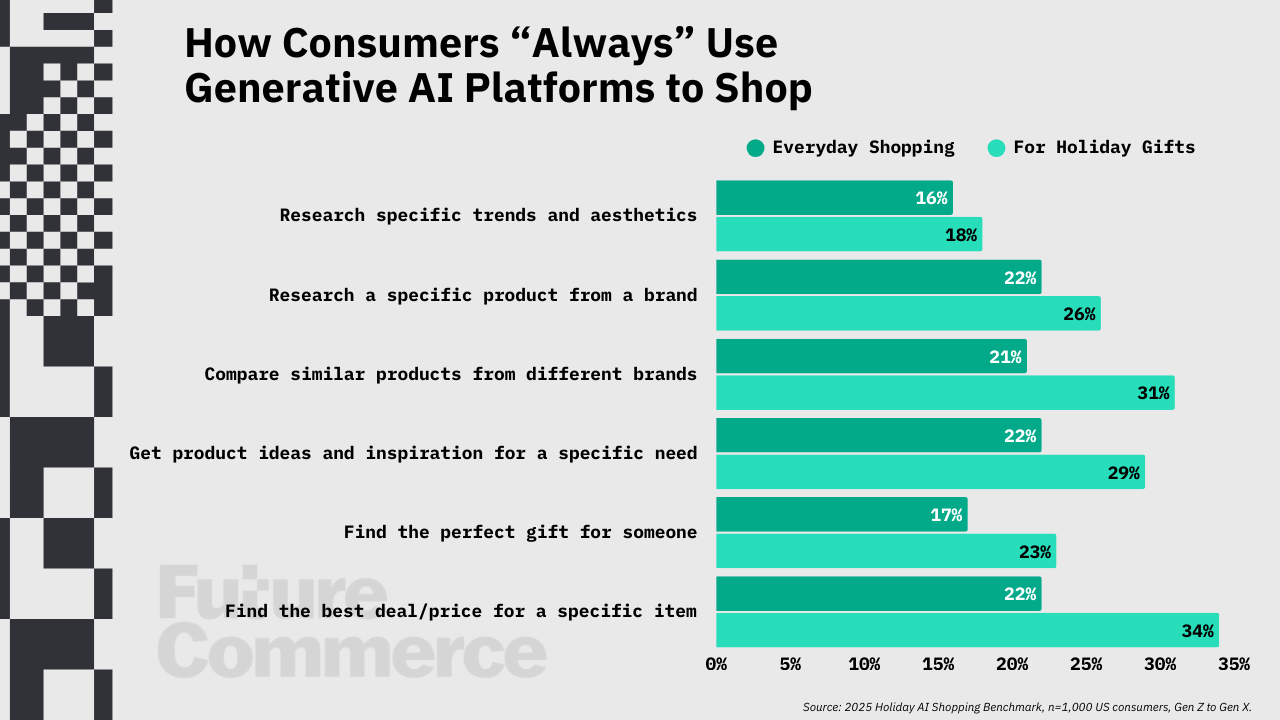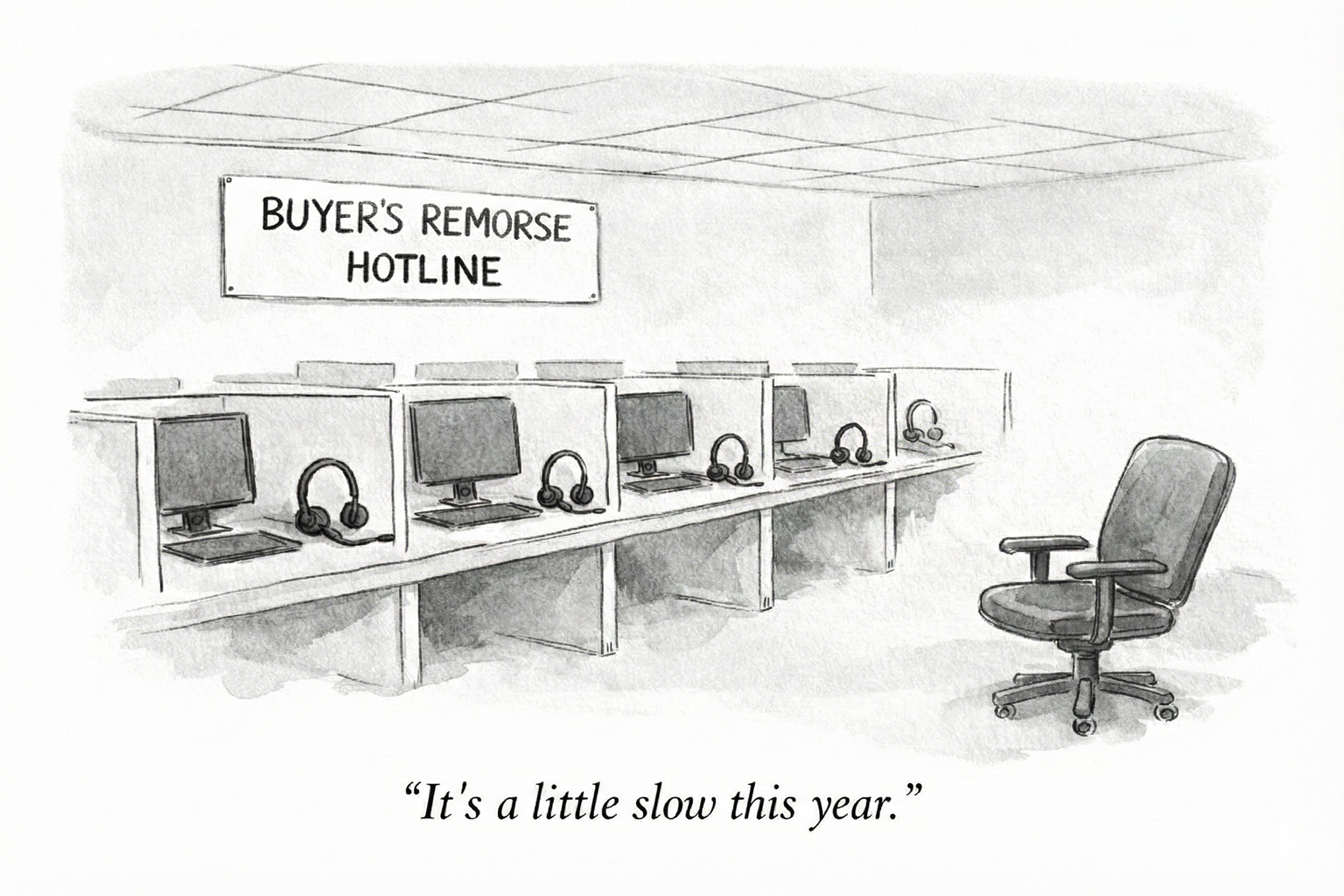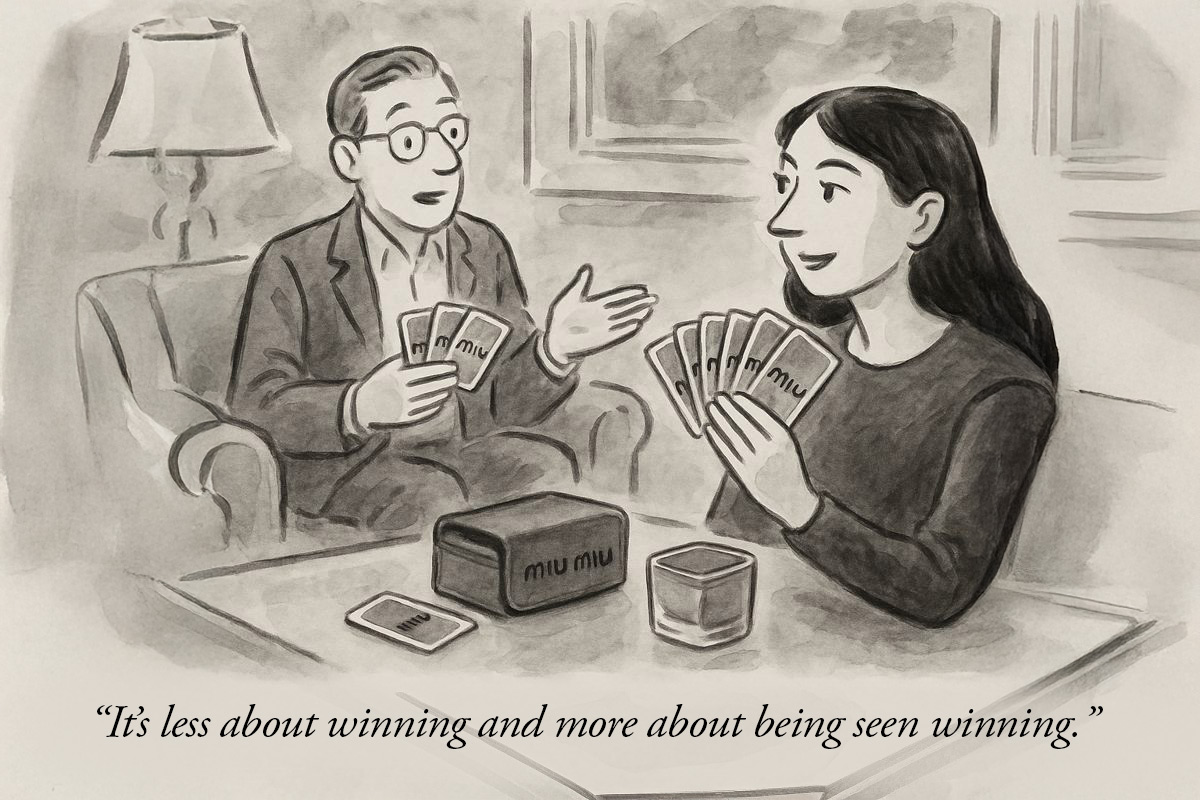
“Terraforming” for Commerce

Welcome to Wednesday, futurists.
“Remove the friction” — ah, timeless advice from eCom operators. I think about this a lot — how much friction is bad? If you remove all of the friction, your customer will spend less time (transactionally) with your brand.
The marketer cannot pat themselves on the back for making the shopping journey faster and faster; the customer is also trained. A frequent online shopper knows “how” to shop online, thanks to the vast homogenization of the eCom experience.
Let’s develop an intuition around this. Grocery stores are one of the most highly-optimized IRL shopping journeys. But optimized for what, speed? Not necessarily. Supermarkets balance their optimization across a number of factors: basket size, discoverability, and correlated purchases. My local supermarket recently reformatted, and it requires the local populace to be retrained.
Eventually, humanity adapts.
As you might expect, we have a bit of a contrarian point of view when it comes to eCom optimization.
Not all friction is bad. A frictionless flip flop is dangerous, a frictionless tire lethal, and frictionless sex boring. Too much friction is also undesirable.
"Frictionless" eCommerce should not be a goal as an eCom marketer… what we need is good friction.
I’ve seen heavily-optimized sites fall into the frictionless trap, and drive refund and return volume through the roof. Buyer’s remorse still exists in 2023, after all.
At all stages of the funnel — from bottom to top — we’re trying to shorten the time required to decide on a purchase. Short-form video reduces friction for TOF, and one-click checkout solves BOF. (Aside: do you need help with business acronyms? Download our handy reference guide to acronyms here.)
In science fiction, when humanity colonizes a new planet, we adapt the planet to our ideal environment. Over generations, we give the planet an atmosphere, we locate and tap into water sources, and we cultivate habitable environments for growing crops.
There are competing theories, though, for how humanity might adapt to the environments, rather than the inverse. In a 2020 talk, digital anthropologist Helen Hester theorized that new environments have a much greater impact on the nature of humanity than the inverse. This is called “anthroperforming.”
In our eCommerce reality, we have terraformed the Internet into a commerce engine. But in turn, eCom has also anthroperformed us. And not just eCom, but all digital interfaces and Internet devices.
While we were busy terraforming the Internet to become more shoppable, humanity has slowly adapted the language of computers into its customs and culture. I’ve mused in these pages before that “consent culture” may stem from our interactions with computers that require our explicit permission before proceeding (remember the Mac vs PC ads?).
We here at Future Commerce could easily be accused of “overspiritualizing” commerce. And how could we not? At least here in the West, where consumerism is the culture, we spend so much of our lives acquiring goods; commerce is a universal experience. Part of that adapted universal experience of buying goods online means that our high-frequency, low-friction, interactions with a brand become monotonous and unremarkable.
And yet, the next great leap of commerce is right around the corner. Spatial Commerce is an emergent and exciting field that is beginning now in eCom with 3D tools like Gaussian splats and NeRFs, technologies that present good friction that immerses the customer more fully into the product, rather than pushing them through the funnel as fast as possible.
We’ve become anthroperformed to the digital commerce environment. It’s time for a bit of friction. Perhaps that friction is Spatial Commerce?
— Phillip
P.S. VISIONS Season 2 is out now! “Where is the Counterculture” is the first episode of this newest season, and features our friends from DIRT, ZINE, and more. Listen to our audio experience of this live panel talk from our June event at MoMA right now on Apple Podcasts or Spotify.

Sight & Sound: Go western, young Crocs. On the heels (sorry) of their Shrek shoe, Crocs announces ventilated cowboy boots, complete with spurs. Prada partners with Axiom Space to design NASA's next-gen lunar spacesuits. The popularity of Costco continues to surge. Lawsuits against Google and Amazon highlight Silicon Valley's influence on our lives. The joy and wonder of food shopping and the significance of supermarkets in the modern age. Hasbro introduces Nerfball, a game using Nerf's smart foam that can detect dart impacts. The Palate: Way back in 1886, the US Government commissioned 7,497 watercolor paintings depicting every known fruit.
A tweet suggests that the return of the McRib is an omen for tragic world events. Touch: Walmart is testing generative AI tools to assist customers in planning parties and decorating spaces.



According to a 2020 keynote by Helen Hester, Anthroperforming > Terraforming. Generative AI is entering the realm of digital spirituality, offering new ways to connect with higher “AIstral” planes (yikes that was terrible, sorry). Meta's new AI dating coach, Carter, is being labeled as conservative and seemingly kink-shames users.











.svg)
